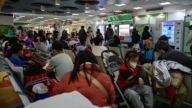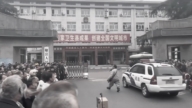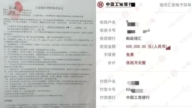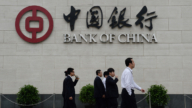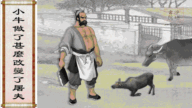【新唐人2011年12月14日讯】中国大陆社科院12号发布了蓝皮书指出,中国2011年已经进入了世界中上等收入国家的行列。专家指出,当前中国大陆经济深陷困境,这个报告很可能是当局从舆论上为自己“贴金”、“救火”。下面请看本台记者的报导。
在2012《产业蓝皮书》发布会上,大陆社科院对外发布了《中国产业竞争力报告》。报告谈到,每年7月份世界银行都会对国家分类进行调整,按照2011年世界银行的标准,中国已经成为中上等收入国家。
但这一说法,引起了各界人士和专家学者的普遍质疑。
美国“南卡罗莱纳大学”艾肯商学院教授谢田对《新唐人》表示,当局发布这个报告,很可能是为了在舆论上造势。
谢田:“(当前)国际社会普遍认为,中国经济面临崩溃这个局面。它(中共)(发布这个报告)是来为自己辩护、为自己贴金,来灭火、救火,跟这个有关系。”
“世界银行”按照人均国民总收入(GNI),对各国经济发展水平进行分组。 2010年的标准规定:人均国民总收入在3976至12275美元之间,为中等偏上收入国家。
中国的人均国民总收入和人均GDP大致相当。大陆国家统计局数据显示,2010年中国GDP达到401,202亿元,按照13.4亿人口和1比7的汇率来计算,人均GDP为4277美元。
但值得注意的是,“人均国民总收入”和“人均收入”并不相同。“人均收入”只包括居民个人所得,而“人均国民总收入”则另外包括企业所得和政府所得。
谢田指出,大陆的GDP数据本身就不可信。中共在低效率、低回报基础项目上的大量投入,造成大量浪费、重复建设,但这些都计入GDP总值。他强调,即使按官方数据,中国人均GDP已经进入中等偏上收入国家,但中国的“人均收入”却远远低于其他中等偏上收入国家。
谢田:“这正好说明了,创造的财富没有真正到了百姓的手中、普通民众的手中,而是大量的集中在政府的手中、国有的大型企业手中。实际上,这也正好验证了,我们一直观察的、中国出现的贫富不均这样一个现象。国富民穷、国进民退的现象,恰恰在这个报导的数据中体现了出来。”
“北京理工大学”经济学教授胡星斗也指出,人均GDP、人均收入中存在大量水分与重复计算,这个报告太不靠谱,只是在为权力歌功颂德。
网友“市井小隐”则留言说:“能不能别再吹嘘GDP,来点实际的吧!经济越来越好,老百姓日子却越来越苦,为什么啊?”
也有专家担心,在进入中上等收入国家之后,经济快速发展积累的矛盾就会爆发,经济会出现大幅波动或陷入停滞。“浙江大学”商学院“光彪讲座”李志文教授则指出,对中国来说,所谓“中等收入陷阱”,实际上是个“政治陷阱”。
李志文:“中国,由于有个共产党在这里,那么,这个政治问题,就是政治体制问题,就变成了发展的很大的一个坎。政治和经济的脱轨,将来是很大的问题。就是说,这个政治跟不上,我们要开回头车。”
社科院的这份蓝皮书还提到,受出口萎缩等影响,2012年中国产业的国际竞争力将进一步减弱。
新唐人记者周玉林、李谦、萧宇采访报导
China—Upper-Middle Income Country?
The Chinese Communist Party (CCP)’s official Bluebook
newly released on 12 December,
says China has entered the ranks of the
world’s upper-income countries.
Experts say mainland China is currently in deep economic
trouble—the Bluebook report likely aims at gaining self-credit and smothering the potential fire of economic problems.
On the press conference for the 2012 Industry
Bluebook release,
the Chinese Academy of Social Sciences also issued
China’s Industrial Competitiveness Report.
The report states that every July, the World Bank reclassifies
countries by their income.
And according to the 2011 World Bank Report, China has
entered the ranks of upper-middle income countries.
However, such a claim aroused suspicion among
people of various sectors, experts and scholars.
Busines Professor at the University of South Carolina,
Frank Tian Xie,
believes the World Bank Report is part of a campaign aimed
at building positive public opinion for the CCP regime.
[Professor Frank Tian Xie]: “Currently, the popular view of
the international community is that China’s economy is edging towards collapse.
So the CCP regime released this report to defend itself,
claim self-credit, and extinguish the fire. That’s the reason.”
The World Bank groups countries by their economic development level,
based on Gross National Income (GNI) per capita.
In 2010, having GNI between U.S. $3,976 – $12,275 meant
ranking as an upper-middle income country.
China’s GNI per capita figure roughly equals to
its GDP per capita. The CCP’s official statistics show
China’s GDP in 2010 reaching over RMB 40 trillion and its
GDP per capita at U.S. $ 4,277–calculated on a population size of 1.34 billion,
and a 7:1 exchange rate of RMB against the US Dollar.
However, GNI per capita is not the same as per capita income.
Per capita income only includes citizens’ personal income, while
GNI per capita also covers corporate income and government revenue.
Frank Tian Xie points out that China’s official GDP figure is
not believable.
The CCP regime has invested heavily in low-efficiency
and low-return infrastructure projects,
resulting in huge amounts of waste and repeated construction.
But all wasted input was also calculated into China’s GDP value.
Professor Xie stresses,even if China has allegedly
entered the list of the world’s upper-middle-income countries,
based on CCP data, China’s per capita income figure is
far lower than that of other countries in this income bracket.
[Professor Frank Tian Xie]: “This precisely tells us that
the nationally generated wealth did not fall into the citizens’ hands,
but was mainly centralized at the authorities and
state-owned large enterprises.
Thus it also proves a phenomenon we’ve observed all along,
that is, of the wealthy government and poor civilians, or
the expansion of the state-owned sector
while the private sector shrinks.”
Professor of economics at the Beijing Institute of Technology,
Hu Xingdou,
says the GDP per capita value and per capita income
contains repeated calculations and lots of inflation.
Hu thinks the report is too tricky–just singing the praises
of the CCP for its power.
A netizen posted online: “Could you stop boasting GDP,
please? Put it into practice instead!
The economy is getting better and better,
while civilians are getting more and more bitter, why? “
Some experts worry that, along with being ranked as
an upper-middle income country,
conflicts accumulated from rapid economic development
will break out, triggering sharp volatility or even stagnation in China’s economy.
Professor at Zhejiang University, Li Zhiwen, comments that
the so-called middle-income trap, is in fact a political trap for China.
[Professor Li Zhiwen]: “The CCP reigns China, so it’s political
system becomes a great barrier for China’s development.
The unparalleled development of politics and economy will
evolve into a big issue in the future.
That is, if the political development cannot keep up,
we’ll face retrogression."
According to the Chinese Academy of Social Sciences Report,
the international competitiveness of China’s industries will be further weakened in 2012 as exports decline.
NTD reporters Zhou Yulin, Li Qian and Xiao Yu






